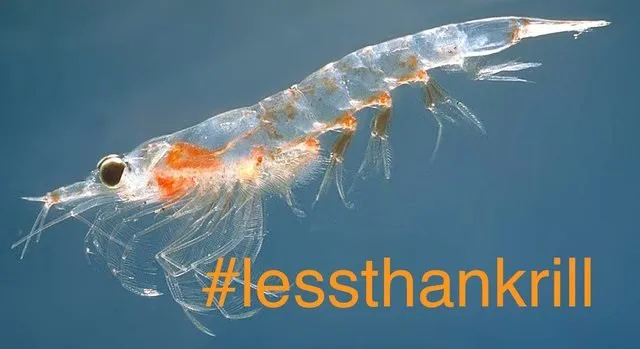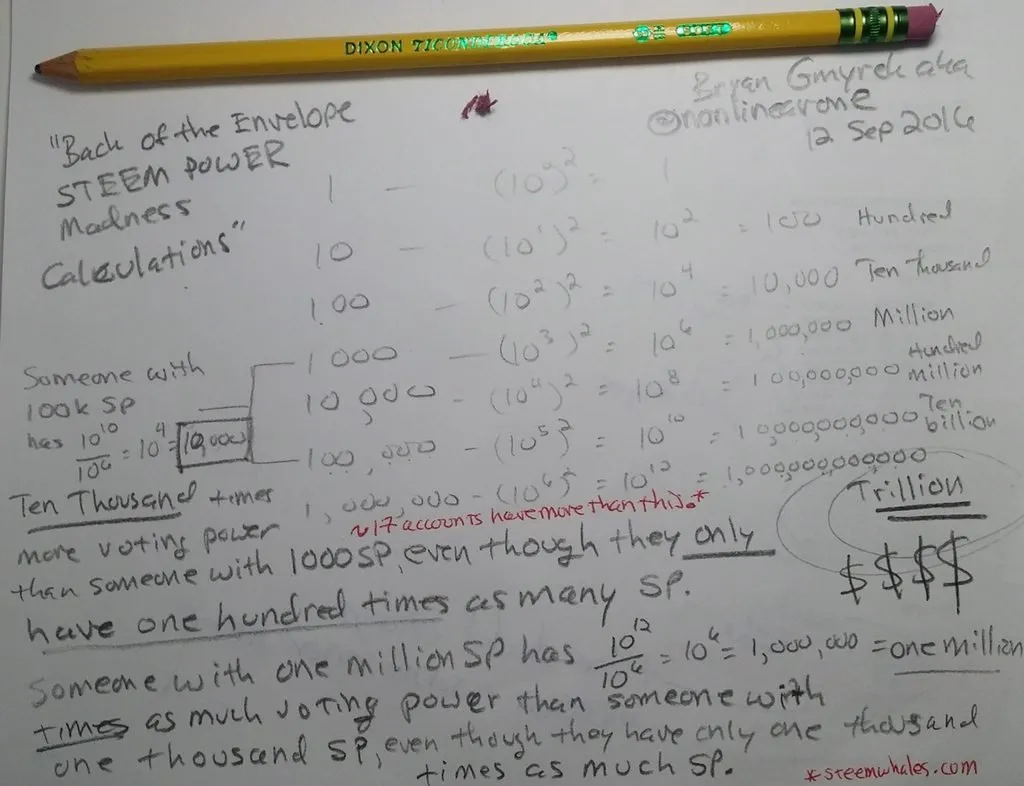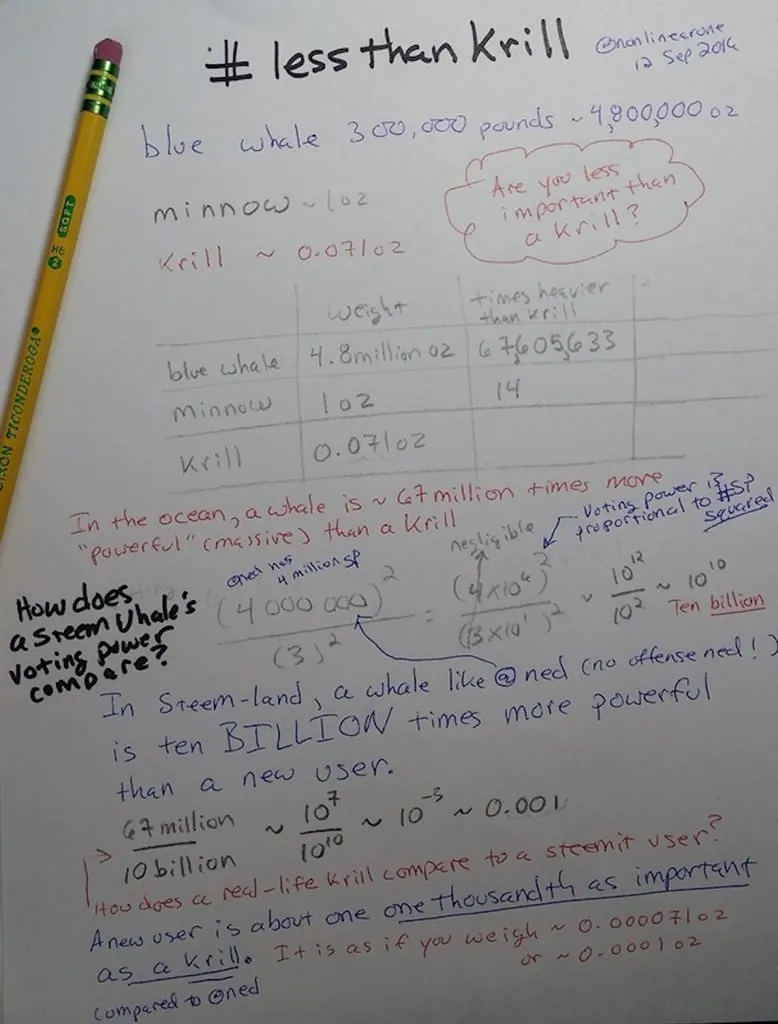

This is exactly how it is supposed to work based on the Steem Whitepaper. But, you have to wonder if this is a good strategy going forward given the fact that there are many accounts with over one million SP.
Is this not a bit too extreme? Might we not see more investment from new users if they could reasonably achieve some influence without investing a million dollars?

This is based on info found in Google searches and such. I kind of hope I'm wrong here but ... seems plausible that, forget Minnows - new users could be one one thousandth as "important" than @ned (in terms of voting power) as a hypothetical "krill" would be.
The main argument for a non-linear voting function seems to be that it can help discourage the creation of fake accounts because people will be incentivized to instead grow their main account since doing so makes more sense when your voting power is higher by doing so. OK, fair enough. However, any function which always increases and does so faster than a linear function would achieve this goal. Why does it have to be n^2? Why not e.g. n^1.1, or possibly some function that favors accounts reaching a certain size, but not accounts which are too large (e.g. something like n^1.1 in the beginning, but transitioning to something like log(n) later).
The 'cover' image is a modified version of this image from wikimedia which is licensed under the Creative Commons Attribution-Share Alike 3.0 Unported license.

Bryan Gmyrek [verification post] lives in sunny Arizona with his wife, three sons, and two golden puppies. He earned a Ph.D. in physics for his work at Fermilab and also enjoys computers, nature photography and blockchains.
